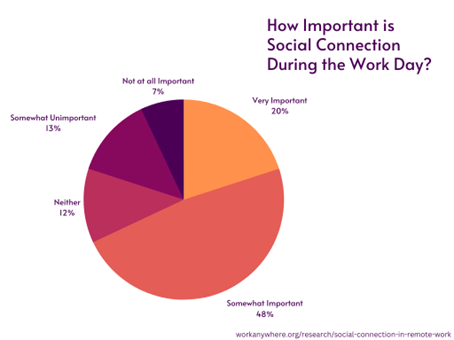The pandemic saw a sharp rise in remote working. But with 40% of Luxembourg workers saying they would quit their job if it prevented them from enjoying their life, it’s clear that it is becoming the norm. Companies need to adapt or risk being left behind in the coming year. But what could remote work look like in 2023?
Before delving into perceptions of how remote working could change throughout the course of the year, it’s important to consider the many questions that come with analyzing remote working. Such as what is ethical culture in a remote working environment? What are employees looking for from remote working in a post-lockdown world? Have lessons of the last few years genuinely been learned by businesses both open to and against remote working?
Embracing technology
As remote working has become more popular, technology has stepped up to make life easier for companies and employees working from home. You may have already heard of cloud-based software, such as virtual desktops and cloud storage. These allow remote workers to take the office home with them. There are also hosted phone systems, such as those provided by 8x8, which means that employees can stay connected with their clients and each other.
But with the rise of employees using their home computer systems comes an increased risk of cyberattacks and data breaches. So 2023 will need to see an increase in cyber-awareness training for employees. Businesses that don’t invest in better cybersecurity could find costs are higher in the long run.
More recently, companies have been making a more controversial investment in ‘bossware’. Employers are keen to keep track of their remote workers with software that monitors anything from productivity to day-to-day work. But some are saying this is an invasion of employees’ privacy.
Focusing on employee mental health
Unsurprisingly, those forced to work from home during the pandemic reported loneliness and poor mental health. But as remote working becomes a choice for many employees, companies need to focus on the mental health of workers who are away from the office. Not only is this a health issue, it also affects productivity, employee satisfaction and retention. After all, happier employees are more likely to work harder and stay loyal to their company.

Image Sourced from workanywhere.org
It can be difficult for employers to create a sense of company culture when their employees aren’t all in the same place. But social connection and feeling like part of a team can enhance productivity. ‘Third spaces’ or places outside of the office are becoming more popular among workers. These can be public places, such as coffee shops, clients’ offices, or coworking spaces.
Hybrid working and flexibility
The pandemic proved that remote working is a viable option for companies and their employees. But many employers were keen to get their workers back into the office. Hybrid working offers a compromise for employees who have gotten used to a better work/life balance. It may be difficult for companies to adapt to different working conditions, but flexibility is a must in this new world of remote working.
With remote working comes flexible work hours. Employees are prioritizing their mental health and will value companies that let them pick their children up from school or pop out to a dentist appointment. Working 9 to 5, Monday to Friday, won’t be the typical work day for much longer.
In order to adapt to these changes, many companies are investing in task management solutions. This kind of software makes it easier for employees to switch between in-office and remote working. Wherever they are, they can access their tasks and schedules. Companies can also track productivity and make sure targets are being met.
A rise in freelancers
An increase in remote work means a rise in opportunities for freelancers. As businesses are adapting to their own employees working remotely, they are more likely to use remote freelancers.
Freelance work has always been a popular choice for people who want to choose their own schedule and not be confined to an office. It also benefits companies, as they can outsource tasks without putting workers on the payroll or making room for them in the office.
What’s next?
As companies are still adapting to this different way of working, 2023 will see further changes in how they accommodate remote work. The focus seems to have shifted to how businesses are looking after their employees. It is clear that technology will have a large role to play, especially when it comes to communication and security.
VoIP technology plays a crucial role in remote working and communication, as it provides a clear and reliable means of communication for remote employees, including those working from home or from other locations. The term "VoIP caller meaning" refers to a person who uses Voice over Internet Protocol technology to make phone calls over the internet, rather than traditional telephone lines." would be after the sentence
Also, if you are currently looking for work, you may find that virtual interviewing is quickly becoming a new trend for many employers.





